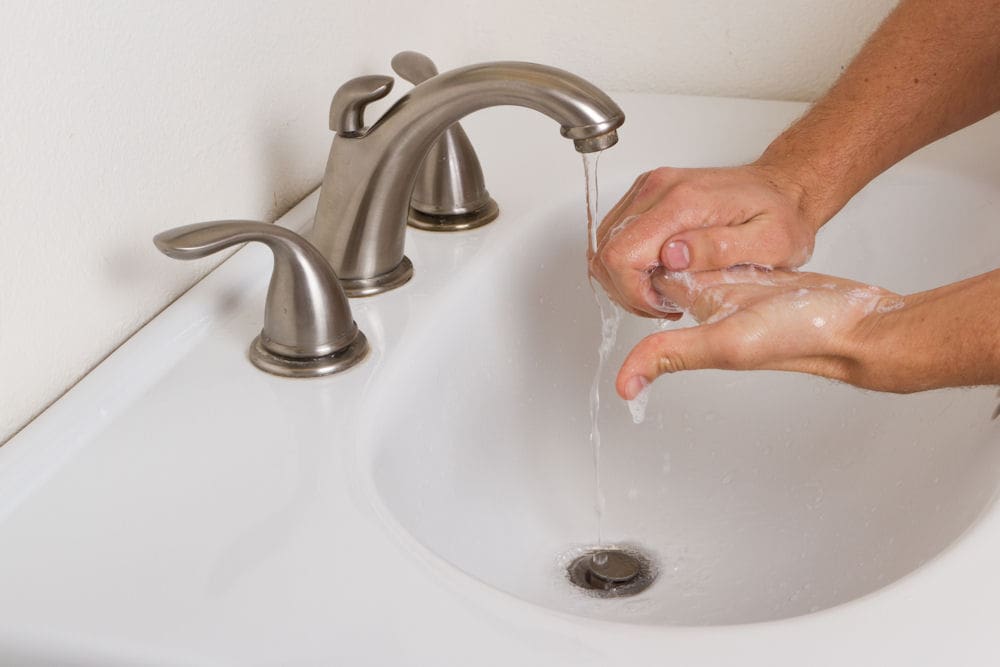OCD and Addiction Treatment in Maryland
There is a connection between all mental health conditions and substance abuse. And obsessive-compulsive disorder (OCD) is no exception. People with OCD often turn to behaviors or substances that give them an escape from their symptoms.
OCD and addiction have a few things in common.
- About one-fourth of people with OCD also meet the criteria to be diagnosed with alcohol use disorder (AUD).
- Almost 20% of people with OCD meet the standards for another substance use disorder (SUD).
- Individuals with OCD have an increased risk of substance misuse and dependence.
Clearly, addiction and OCD are linked. In fact, scientists have been considering whether OCD is actually a behavioral addiction.
At The Freedom Center in Gaithersburg, Maryland, we specialize in providing treatment for people with co-occurring disorders such as OCD and addiction.
OCD and Addiction
The Journal of Anxiety Disorders reported that more than 25% of people caring for OCD also have a drug use disorder. Furthermore, people who first develop OCD symptoms during childhood or adolescence are more apt to develop an alcohol addiction or drug addiction. It’s unlikely to be adequate to treat an active OCD condition without treating the emotional symptoms of OCD.
The Freedom Center in Gaithersburg. Maryland has a Dual Diagnosis program specifically to help individuals with co-occurring conditions such as substance or alcohol abuse and OCD.
What is OCD?
OCD is an anxiety disorder that causes upsetting, intrusive thoughts. An individual with OCD has unreasonable fears and anxiety because of repeated thoughts. For example:
- A person may have frequent, intrusive thoughts about someone breaking into their house. This is the “obsessive” part.
- In response to this thought, many people with OCD will perform ritual behaviors that relieve the anxiety due to these thoughts. They might then check the doors repeatedly to make sure they are locked. This is the “compulsive” part of the condition.
Five Common Types of OCD
1. Organization
This is probably the most recognizable type of OCD and involves obsessions about things being in the right place or symmetrical. If everything isn’t just right, the person may feel distress or thoughts that the lack or organization will cause harm to their loved ones or themself.
2. Contamination
3. Intrusive thoughts
4. Ruminations
5. Checking
Facts About Obsessive-Compulsive Disorder
Often on TV and in movies, obsessive-compulsive disorder is seen as the topic of humor, fascination, or terror. People with complicated cleaning habits or who demand complete control of their environment are made fun of. We see scary movies that feature a character obsessed with committing heinous crimes. The fact is, people with OCD suffer from severe anxiety and internal torture because of their uncontrollable thoughts. Here are some facts:
- The Wexner Medical Center at Ohio State University stated that OCD affects about 2.2 million people in the United States.
- Since OCD affects family members more frequently, it tends to have a hereditary aspect.
- People with OCD are aware that their fears are irrational. Still, they can’t restrain their need to carry out compulsive rituals to relieve their anxieties.
- Testing windows, hand washing, and cleaning are all ritualized habits that can use up so much time that they get in the way of other everyday activities.
Fears and Rituals
The fears and rituals linked to OCD are different from person to person, but there are some similarities. The most common concerns among people (children and adults) with OCD are:
- The fear of being infected with bacteria or viruses
- An obsession with certain numbers that are thought of as “good” or “poor”
- A preference for religious subjects
- Fear of getting sick or losing a family member from injury or illness
- Pictures of sexual acts that are intruding into their thoughts
- Thoughts about hurting themself or someone else
People with OCD are afraid that if they don’t follow their rituals, they or someone close to them will be hurt. Still, others are worried that if they don’t carry out the rituals, they will hurt someone else.
Substance Use Disorders
SUD may refer to substance use or substance dependence, whether the substance is alcohol, illegal, or prescription drugs. Although there are specific symptoms for certain drugs, there are symptoms of SUD that are common to any substance use.
Common Symptoms of SUD
Behavioral changes including:
- Decrease in performance and attendance at school or work
- Getting into trouble frequently (fights, illegal activities, accidents)
- Using substances in physically dangerous situations (while driving or operating machinery)
- Behaving in a secretiveor suspicious manner
- Changes in sleep or appetite patterns
- Sudden mood swings, angry outbursts, or irritability
- Periods of uncommon hyperactivity or giddiness
- Loss of motivation
- Seeming to be fearful, anxious, or paranoid for no reason
Physical changes including:
- Abnormally sized pupils and bloodshot eyes
- Sudden change in weight
- Decline of physical appearance
- Unusual odors on breath, body, or clothing
- Slurred speech, tremors, or loss of coordination
Social changes including:
- Sudden change in friends, hangouts, and hobbies
- Legal problems from substance use
- Unexplained financial problems or need for money
- Continuing to use substances despite the problems it causes
What’s the Link Between OCD and Addiction?
In general, addiction is common, however it’s more prevalent among people with severe mental health conditions including OCD. Estimates vary about how many people with OCD also have addictions. A study conducted in 2020, found that of about 38,157 veterans with OCD also had a substance use disorder (36.7%). The substances most commonly abused were:
- Tobacco: 26.5%
- Alcohol: 17.1%
- Cannabis: 5.5%
- Opioids: 3.6%
- Cocaine: 3.37%
- Amphetamines: 1.5%
In addition, a 2022 study on behavioral addictions found high rates of people with OCD and addictions. In the study, 150 people at an OCD clinic in India were asked to report their symptoms. They were then compared to the symptoms of 131 individuals without OCD. Among the group with OCD, 70% reported symptoms of behavioral addiction. The percentage of those without OCD was 58%. Interestingly, internet addiction was unusually high, affecting 29.3% of people with OCD compared to 3.1% without OCD.
So, Why are They Linked?
There are several theories why addiction is more common in people with mental health conditions such as:
- Self-medication: Individuals may use substances to cope with their symptoms
- Overlapping risk factors: The risk factors for addiction and mental health conditions are similar, including:
- Early stress and trauma
- Changes in brain chemistry or structure
- Genetic changes that make certain people more susceptible to both
- Side effects of substance use: Some addictive substances can make a mental health condition worse, either during the use or when it wears off
Compulsiveness and Impulsiveness
Some theories explain the link is due to a link between compulsiveness and impulsiveness. Impulsivity means a person is less able to regulate their behavior. They tend to act “on impulse.” They follow spontaneous urges to try potentially addictive substances or behaviors. A 2021 study speculated that people with more severe OCD may have higher levels of impulsivity, which explains why addiction rates for this group are higher.
Are Compulsions and Addictions the Same?
To an outside observer, the repetitive behaviors of OCD might look like addictions. Compulsion and addiction both create powerful urges that are hard to resist and if the person can’t engage in them, they may become anxious. And although compulsion and addiction can occur at the same time, they are different. Compulsions can be neutral behaviors like tapping or counting or anunpleasant behavior like excessive hand washing that leads to cracked, painful skin.
Addiction, however, involves substances or behaviors that offer a reward. It might provide excitement, pleasure, or an escape. And while they might generally be harmful, the activity itself is enjoyable, even if it is only temporary. So, although addiction is compulsive because it is so hard to stop, compulsions are not usually addictions.
The Challenge of Treating OCD and Addiction
Managing OCD as a co-occurring condition with addiction has a lot of challenges. But it also has many benefits and can change your life. Entering a treatment program can be intimidating to a person because it’s an uncontrollable environment with unknown factors.
It’s also hard to concentrate on individual counseling or group sessions because of the intrusive thoughts and time-consuming routines associated with OCD. The symptoms and needs of OCD can be integrated with a specialized Dual Diagnosis recovery program. This allows these individuals to complete a therapy program.
According to the University of Michigan Depression Center, behavioral intervention counseling and medication are the tools used to treat OCD most often.
- Cognitive-Behavioral Therapy (CBT) is a type of therapy that helps the person recognize and modify harmful habits. Sessions for OCD allow the person to be exposed to the object of their fear without performing their anxiety-reduction rituals. The aim of this is to get rid of the irrational fear that comes with certain situations or objects.
- Educating the family is another critical aspect of Dual Diagnosis treatment. OCD appears confusing and hard to understand to a partner, child, or parent. Family members frequently ask why an individual with OCD keeps repeating behaviors that are otherwise unexplainable. Counseling sessions and educational classes can help family members understand the compulsive, uncontrollable basis of the illness. The more the family knows, the more they can prepare to help their loved one make a complete recovery.
Treating OCD and Addiction
When treating the co-occurring conditions of OCD and addiction, you will need a Dual Diagnosis recovery facility with and experienced staff of mental health and addiction experts who understand the complexities of OCD to recover from both conditions.
Treatments
- Talk Therapy
Both SUD and OCD respond to talk therapy. The therapist works with you to understand the motives behind your behavior, address automatic thoughts, learn new coping skills.
- Symptom Management
Medications often help some people with OCD, but the effects vary from person to person.
- Medication-assisted treatment (MAT)
If you have SUD, you may be eligible for MAT, an addiction treatment which helps your body adjust to going without substances. It reduces cravings and withdrawal symptoms.
- Support groups or programs
Support groups offer support, recovery strategies and reassurance.
It’s important to treat both conditions at the same time. OCD and addiction can reinforce each other. It’s also important not to try to quit substances “cold turkey.” With certain substances, this can be very dangerous.
Seeking Help and Freedom
People with OCD and addiction can get treatment at any time. Generally speaking, the earlier the better because this helps reduce the risk of severe symptoms or complications. The Freedom Center in Gaithersburg, MD, is prepared to help you with experienced therapists, mental health professionals, and addiction specialists.
Our dual diagnosis program can provide the kind of treatment team you need to overcome this double-barrelled assault on your physical and mental health. Our mental health professionals are experienced in several types of behavioral therapy, family therapy, and of course, individual talk therapy.
In addition, Freedom Center has four levels of care, from residential to a standard outpatient program. You can enter at the level appropriate for your needs and step down or up as your needs require. Free yourself from your twin demons. Contact us today.






























